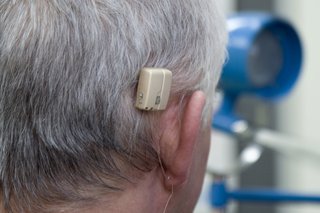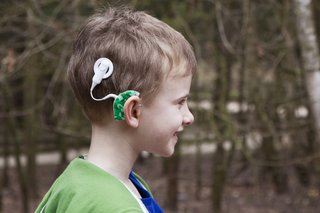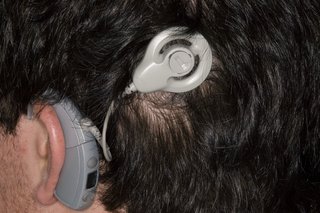Hearing loss can be temporary or permanent. It often comes on gradually as you get older, but it can sometimes happen suddenly.
See your GP if you notice any problems with your hearing so you can find out the cause and get advice on treatment.
Signs and symptoms of hearing loss
It's not always easy to tell if you're losing your hearing.
Common signs include:
- difficulty hearing other people clearly, and misunderstanding what they say, especially in noisy places
- asking people to repeat themselves
- listening to music or watching television loudly
- having to concentrate hard to hear what other people are saying, which can be tiring or stressful
The signs can be slightly different if you only have hearing loss in 1 ear or if a young child has hearing loss.
Read more about the signs and symptoms of hearing loss.
When to get medical help
Your GP can help if you think you're losing your hearing.
- If you or your child suddenly lose hearing (in 1 or both ears), call your GP or NHS 111 as soon as possible.
- If you think your or your child's hearing is getting gradually worse, make an appointment to see your GP.
- If you're concerned about a friend's or family member's hearing, encourage them to see their GP.
Your GP will ask about your symptoms and look inside your ears using a small handheld torch with a magnifying lens. They can also do some simple checks of your hearing.
If needed, they can refer you to a specialist for more hearing tests.
Causes of hearing loss
Hearing loss can have many different causes. For example:
- Sudden hearing loss in 1 ear may be due to earwax, an ear infection, a perforated (burst) eardrum or Ménière's disease.
- Sudden hearing loss in both ears may be due to damage from a very loud noise, or taking certain medicines that can affect hearing.
- Gradual hearing loss in 1 ear may be due to something inside the ear, such as fluid (glue ear), a bony growth (otosclerosis) or a build-up of skin cells (cholesteatoma)
- Gradual hearing loss in both ears is usually caused by ageing or exposure to loud noises over many years.
This may give you an idea of the reason for hearing loss – but make sure you see a GP to get a proper diagnosis. It might not always be possible to identify an obvious cause.
Treatments for hearing loss
Hearing loss sometimes gets better on its own, or may be treated with medicine or a simple procedure. For example, earwax can be sucked out, or softened with eardrops.
But other types – such as gradual hearing loss, which often happens as you get older – may be permanent. In these cases, treatment can help make the most of the remaining hearing. This may involve using:
- hearing aids – several different types are available on the NHS or privately
- implants – devices that are attached to your skull or placed deep inside your ear, if hearing aids aren't suitable
- different ways of communicating – such as sign language or lip reading
Read more about treatments for hearing loss.
Preventing hearing loss
It's not always possible to prevent hearing loss, but there are some simple things you can do to reduce the risk of damaging your hearing.
These include:
- not having your television, radio or music on too loud
- using headphones that block out more outside noise, instead of turning up the volume
- wearing ear protection (such as ear defenders) if you work in a noisy environment, such as a garage workshop or a building site; special vented earplugs that allow some noise in are also available for musicians
- using ear protection at loud concerts and other events where there are high noise levels
- not inserting objects into your or your children's ears – this includes fingers, cotton buds, cotton wool and tissues
Read more tips to protect your hearing.
Social care and support guide
If you:
- need help with day-to-day living because of illness or disability
- care for someone regularly because they're ill, elderly or disabled - including family members
Our guide to care and support explains your options and where you can get support.
Page last reviewed: 1 August 2018
Next review due: 1 August 2021



